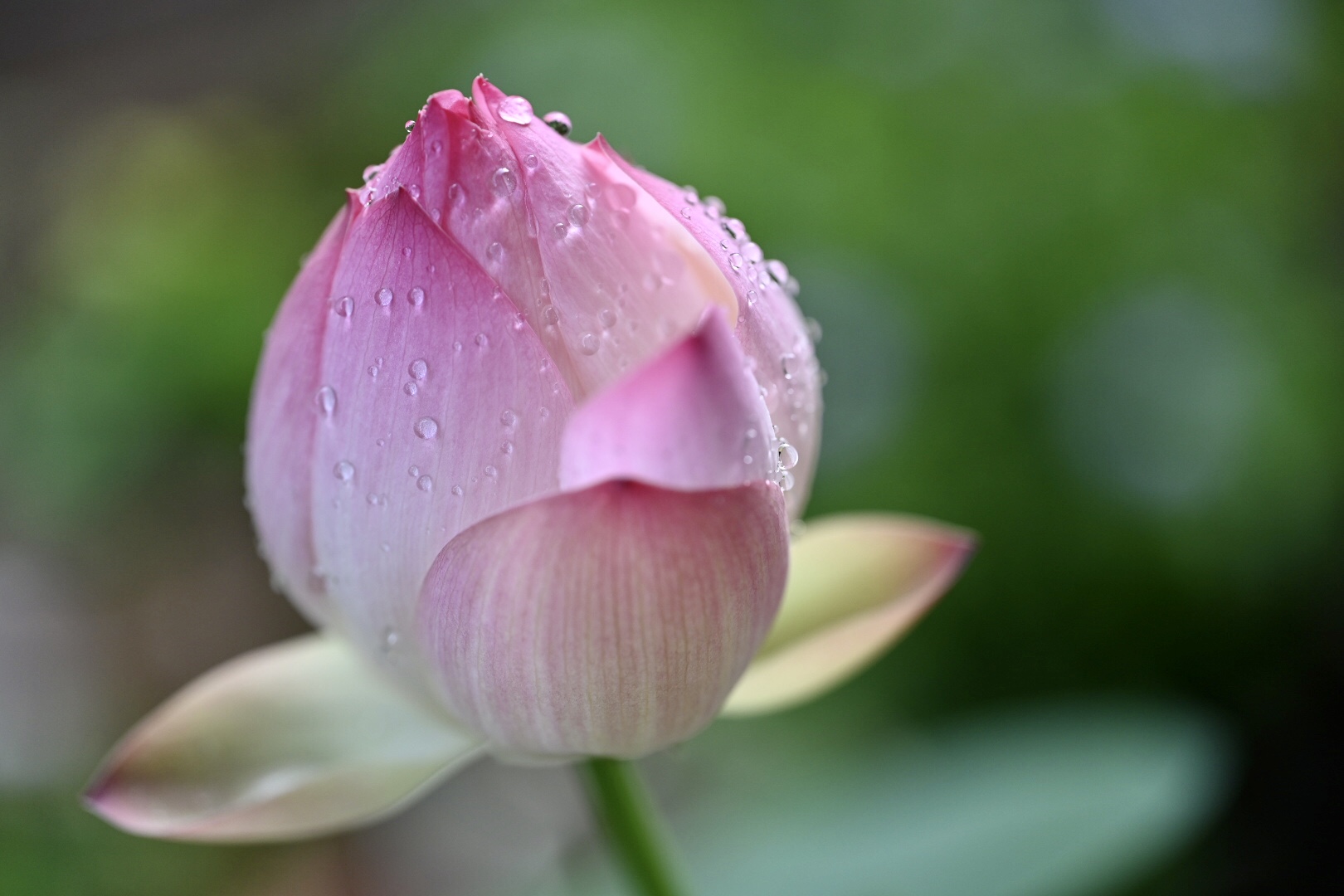Live Limitless Life: Triple Learnings
The Buddha, Awakened One, illustrated the rarity and value of human life and its awakened way by saying that it is more rare and valuable than a blind turtle living at the bottom of the ocean, coming up to the surface once in a hundred years, and sticking its head into a hole in a floating log. How can we live our precious life in the best way possible in a world of impermanence and suffering?
He made an example of his life, cultivating the Triple Learnings of morality, concentration, and prognosis, and verifying the Four Limitlessnesses of friendship, compassion, joy, and equanimity. He knew that all beings are karma-born, -heirs, -owners, -machines, and -refuged, and that we must cultivate ourselves and take refuge in good karma, avoiding bad karma in our will, emotion, and intelligence.
Good karma in our will, emotion, and intelligence are cultivated in the Triple Learnings of morality (sīla), concentration (samādhi), and prognosis (prajñā). Sīla is the pillar/backbone that makes a house/body stand firmly and function well. Samādhi stills and stabilizes our bodies and minds. Prajñā provides profound insight and wide perspective in truth and ethic, the bases for sīla and samādhi.
Prajñā, based on the awakening of the Dharma of all dharmas, i.e., Dependent Co-origination, prognosticates truth, goodness, beauty, and holiness (wholly wholesomeness) in cultivating our karma in the limitlessly interdependent world, providing limitless friendship and compassion. Samādhi and prajñā provides limitless joy and equanimity beyond karma kinetics and ken.
August 12, 2023 C.E.
Notes:
- The blind turtle represents the blind life of karmic existence, and the ocean the vast and violent waves of the suffering world. It would be almost impossible for the turtle to find and fit its head into a small hole of an aimlessly floating log, and encountering the Awakened Way and living it within the limitless life world is also this way.
- The Dharma (Norm/Law) of all dharmas (forms/phenomena) is Dependent Co-origination, i.e., all phenomena are interdependently co-originating on limitless causes and conditions throughout time and space. So, all phenomena are related and relative, changing and changeable.
- The life system is in a limitlessly interdependent and interrelated system through limitless space and time. If we can acknowledge and activate it, we can function as limitless life, light, liberation, and love, like the crystal balls of the Indra-net, making it holy (wholly wholesome), harmonious, healthy, and happy, calm and clear, collectively and continuously.
- Sīla/śīla is to cultivate and conform to the Dharma of our life functions in will, emotion, intelligence (expressed in bodily, verbal, and mental forms), concretely in the Five/Ten Precepts (Sīla/śīla: backbone: cultivated character):
Five Precepts:
No killing, stealing, sexual misconduct, lying, intoxicants (the first four, then all five, became the bases of the Declaration toward a Global Ethic, issued by the Parliament of the World’s Religions in 1993 in Chicago).
Ten Precepts:
Physical: No killing, stealing, sexual misconduct
Verbal: No lying, eccentric words, abuse, double tongue
Mental: No desire, divisiveness, delusion
- Samādhi is essential to go beyond karma (especially its Triple Poisons of desire, divisiveness, and delusion) and settle in nirvana (by sitting still, stilling karma, settling in nirvana, seeing the Dharma/dharmas/Dharma world, and serving and saving all), within which paññā/prajñā can function.
- Paññā/prajñā provides profound insight and holy perspective, not only prognostication’s after-care, but precautions beyond the partialities, preconceptions, and preoccupations of karma.
無量寿を生きよ:三学
ブッダ、覚者、は人間の生命と覚道の稀有と価値を、大海の底に棲む盲亀が百年に一度海面に上りその頭を浮木の穴に嵌るより稀有で価値があると例え話で表現しました。私達は自らの尊い生命を無常と苦の世界で如何にして最善に生きることができるでしょうか?
彼は戒定慧の三学を修行し慈悲喜捨の四無量を実証して自己の生命を例示しました。彼は一切衆生は業‐誕生者、‐相続者、‐所有者、‐機械、‐依拠者であり、私達は自ら修養し、知情意において悪業を避け、善業に依拠しなければならないことを知っていました。
知情意の善業は戒定恵(sīla, samādhi, prajñā)の三学によって修養されます。戒(sīla)は家・身を強固にし機能するようにする柱・背骨です。定 (samādhi)は私達の心身を静止し安定させます。恵 (prajñā)は戒・定の基盤となる真理・倫理における深甚の洞察と広大な視野を提供します。
諸法の法である縁起(因縁生起)に基づいた智慧(般若:prajñā/prajñā)は無限に相依する世界における私達の業を修養するのに真善美聖(全体健全)を処方し、無限の慈(友情)悲(同情)を提供します。定・恵は業の活動と範囲を超えた無限の喜(歓喜)捨(捨念清浄:静謐)を提供します。
2023共通年8月12日
註:
1.盲亀は業存在の盲目の生活を表し、大海は苦世界の広大・荒涼な波を表します。盲亀がその頭を当てもなく浮遊する丸太の小さな穴を見つけて入れるのは殆ど不可能ですが、覚道に遭遇し無量寿の世界内でそれを生きるのも又その様です。
2.諸法(形態・現象)の法(規範・法則)は縁起(因縁生起)です、即ち諸現象は時空における無量の原因と条件に基づいて生起するということです。だから、諸法は相関し相対であり、変化し変えることも可能です。
3.生命組織は無限の時空を通じての無限の相依相関の組織です。もし私達がそれを認知し実践するなら、私達は帝釈網の(結び目にある)水晶の珠のように無量寿、無量光、無量自由、無量愛として機能し、集合的に持続的にそれを聖(全体健全)、調和、健康、幸福にし、静謐・明澄に機能できます。
4.戒(Sīla/śīla)は知情意(身口意の形で表出)の生活機能を法に合致し修養することですが、具体的には五戒・十戒(背骨:修養した性格)です:
五戒:不殺生、不偸盗、不邪淫、不妄語、不飲酒(先ず前四項が、後に全五項が1993年シカゴでの世界宗教会議で発出された「地球倫理宣言」の基盤となりました。)
十戒:
身業:不殺生、不偸盗、不邪淫
口業:不妄語、不綺語、不悪口、不両舌
心業:不貪欲、不瞋恚、不愚痴
5.定(Samādhi)は業(特にその貪瞋痴の三毒)を超え、(静坐、止業、住涅槃、観法/諸法/法界、一切奉仕・救済し)涅槃に安住するのに必須であり、この中で般若の智慧(paññā/prajñā)が働きます。
6.恵(Paññā/prajñā)は(医学)処方のアフターケア(事後手当)のみならず、業の部分性、先入見、先入主を超えた予防の為の深甚の洞察と聖(全体健全)なる視野を提供します。
.
.
.
.
.
.
.
.
.


